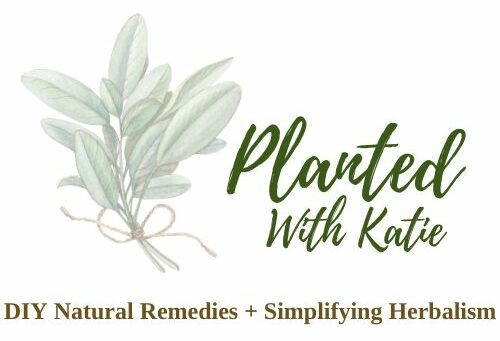5 Effective Herbs For Gum Inflammation and Gingivitis
Discover the 5 Best Herbs For Gum Inflammation. Learn how herbal remedies can improve your gum health and overall oral hygiene.
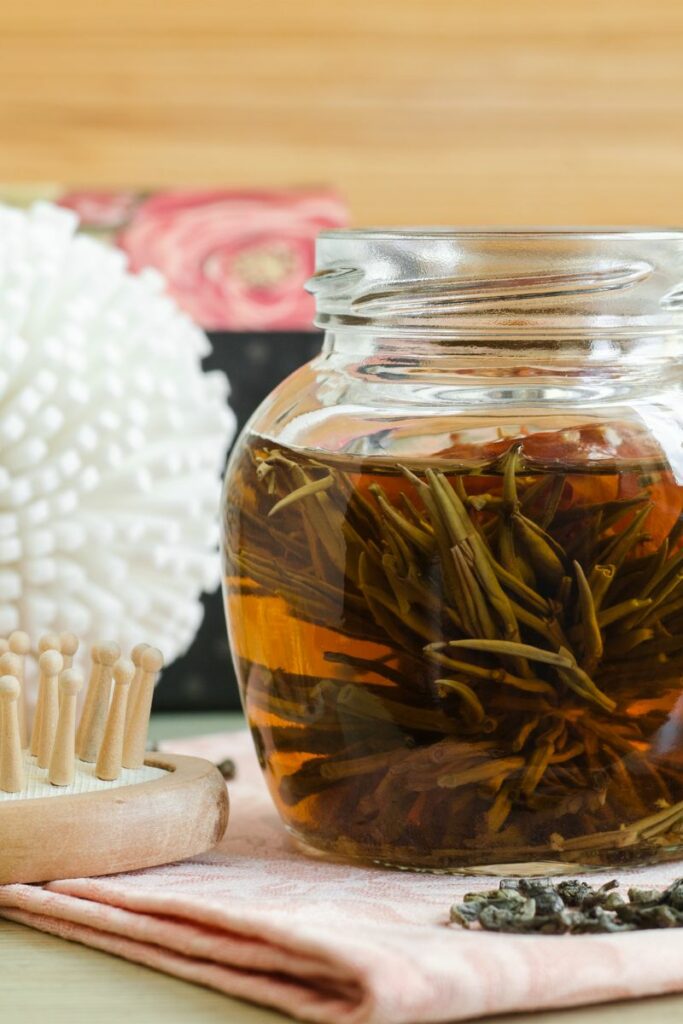
Disclaimer: This is not medical advice. Information and statements shown here are for educational and informational purposes only and are not to replace the advice of your healthcare professional.
This post may include affiliate links. Please refer to our disclaimer for full disclosure.
Gum inflammation, or gingivitis, is a common yet troublesome condition that affects many people. It typically begins when plaque, a sticky film of food and bacteria, builds up along and under the gum line. This can lead to red, swollen gums that might bleed easily, especially when brushing or flossing.
Addressing dental health is crucial not only for maintaining a healthy mouth but also for overall well-being. Healthy gums are a foundation of good oral hygiene and directly contribute to your ability to eat and speak comfortably. Ignoring gum health can lead to severe dental and systemic health issues, making it essential to take proactive steps towards maintaining gum health.
In addition to traditional dental treatments, home remedies have been used for centuries to treat various ailments, including oral health issues. These natural solutions can offer effective relief for gum inflammation with fewer side effects than some conventional medicines. In this post, we'll explore a variety of herbs known for their anti-inflammatory and antiseptic properties, which can help soothe irritated gums and improve oral health. Whether you're looking to complement your existing oral care routine or seeking natural remedies, these herbs might just be what your gums need to stay healthy.
Signs of Gum Disease
Recognizing the signs of gum disease is crucial for maintaining good oral health and preventing the progression of this common but potentially serious condition. Gum disease, also known as periodontal disease, occurs in two main stages: gingivitis, which is the milder form, and periodontitis, a more severe form that can lead to tooth loss and other health complications. Here are the key signs of gum disease you should be aware of:

Early Signs of Gum Disease (Gingivitis)
Usually if you get ahead of these signs early for the treatment of gingivitis, you're able to improve the health of your teeth and gums immensely.
- Redness: The gums may appear redder than usual, indicating inflammation.
- Swelling: Inflammation of the gums. Gums might be swollen and feel tender to the touch.
- Bleeding: One of the most common signs is bleeding gums, especially when brushing or flossing. Even mild brushing can cause the gums to bleed.
- Bad Breath: Persistent bad breath or a bad taste in the mouth can be a sign of gingivitis.
Advanced Signs of Gum Disease (Periodontitis)
These are signs and symptoms to seek medical care for.
- Gum Recession: Gums may pull away or recede from the teeth, giving the teeth an elongated appearance.
- Pockets: As gums recede, they may form pockets around the teeth where food particles and bacteria can accumulate.
- Loose Teeth: Teeth may become loose due to the weakening of the supporting structures of the teeth.
- Pus: Pus between your teeth and gums can be a sign of an infection.
- Changes in Bite: You might notice a change in the way your teeth fit together when you bite.
Other Indicators
- Pain While Chewing: As the disease progresses, it can cause discomfort or pain during chewing.
- Sensitive Teeth: Increased sensitivity to hot or cold temperatures can occur as gums recede and expose more of the tooth root.
- Sores in the Mouth: Gum disease can sometimes cause sores or ulcers in the mouth.
The Benefits of Using Herbs for Gum Health
Herbal medicine has been used for centuries to treat various health issues, including gum problems. Today, many people are rediscovering the benefits of using plants and natural substances to take care of their teeth and gums. This section will look at why herbal remedies are becoming a popular choice for oral care and how they can be better than traditional chemical treatments.
Herbs are packed with natural compounds that help fight inflammation and bacteria, making them great for oral care. For example, herbs like aloe vera, turmeric, and green tea are known for their abilities to calm inflamed gums, reduce plaque, fight tooth decay, and even help gums heal. These herbs are used in many natural dental care products because they work well without being harsh.
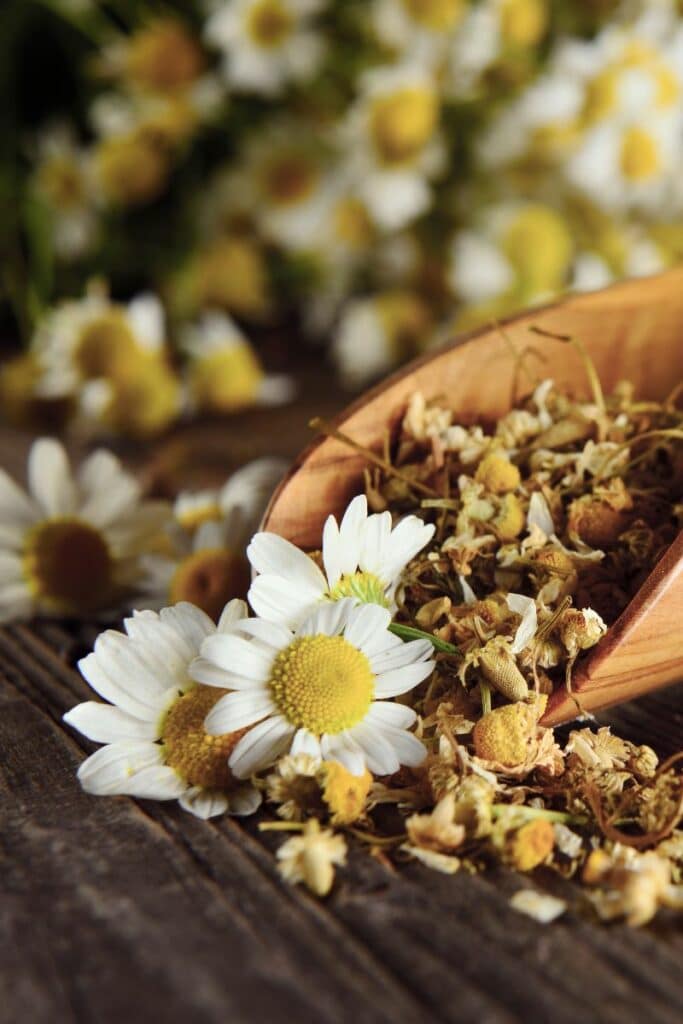
7 Top Herbs for Gum Inflammation
Aloe Vera
Properties: Aloe Vera is well-regarded for its soothing and anti-inflammatory effects, which make it excellent for treating gum inflammation.
How to use: Apply Aloe Vera gel (either storebought or from an aloe vera plant) directly to the gums or use it as a mouthwash by diluting the gel in water.
Chamomile
Properties: Chamomile has antiseptic and anti-inflammatory properties, making it a gentle option for reducing gum discomfort.
How to use: Brew a strong chamomile tea and use it as a mouth rinse, or apply a cooled tea bag directly to the affected gums.
Peppermint
Properties: Known for its antibacterial and antiviral properties, peppermint can help keep your mouth clean and pain-free.
How to use: Add a few drops of peppermint oil to water and use as a mouthwash, or chew on fresh peppermint leaves.
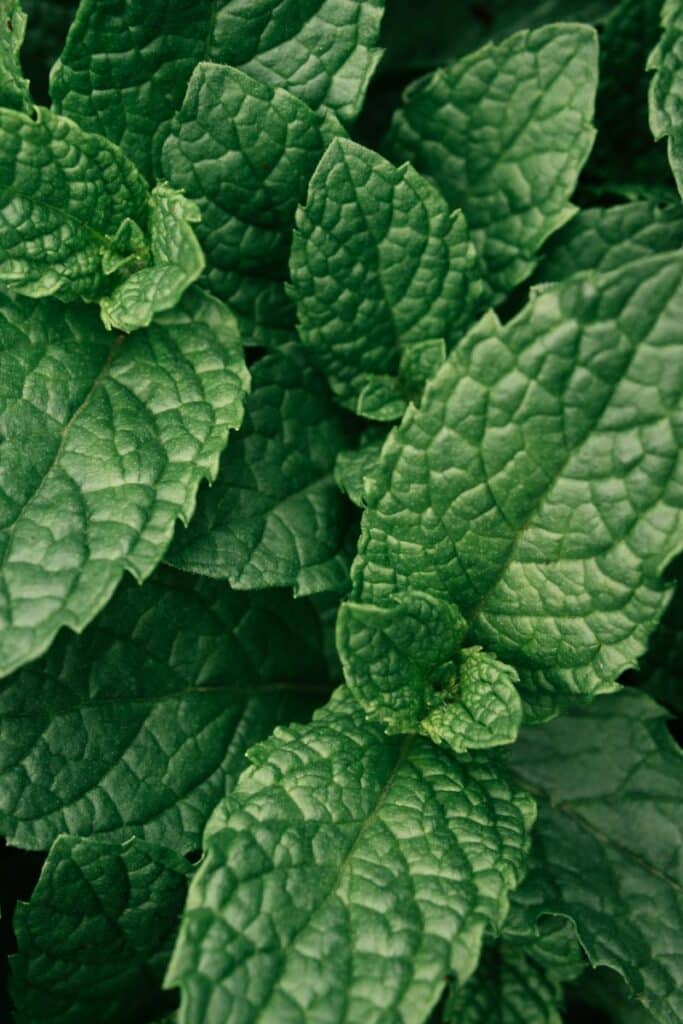
Tea Tree Oil
Properties: Tea tree oil is powerful with strong antibacterial and healing properties, ideal for oral health.
How to use: Dilute tea tree oil with water and use as a tea tree oil mouthwash. It’s important to never swallow tea tree oil as it can be toxic if ingested.
Turmeric
Properties: Turmeric is celebrated for its natural antiseptic and anti-inflammatory qualities.
How to use: Make a paste with turmeric powder and water and apply it to your gums, or add turmeric to your diet to benefit from its overall health properties.
Clove
Properties: Clove is famous for its pain relief and antibacterial effects, which can be very soothing for inflamed gums.
How to use: Apply clove oil to the gums, or chew on whole cloves to release the oil.
Neem
Properties: Neem helps improve the health of your gums and prevents the buildup of plaque.
How to use: Use neem twigs for brushing your teeth, or use a neem-based mouthwash (can make your own with neem powder) for a healthy mouth.
3 Other Herbs For Dental Health Worth Noting
- Witch Hazel: Known for its strong astringent properties, witch hazel can help reduce gum swelling and soothe irritated tissues in the mouth.
- Black Tea: Rich in tannins, black tea acts as a natural astringent, helping to reduce inflammation and bleeding in the gums. It can be used as a mouth rinse or applied directly to the gums with a tea bag.
- Coconut Oil: Coconut oil is celebrated for its antimicrobial properties, making it effective in combating harmful bacteria in the mouth. It's often used in oil pulling, a technique that involves swishing oil in the mouth to improve oral hygiene and overall health by reducing bacteria, plaque, and bad breath.
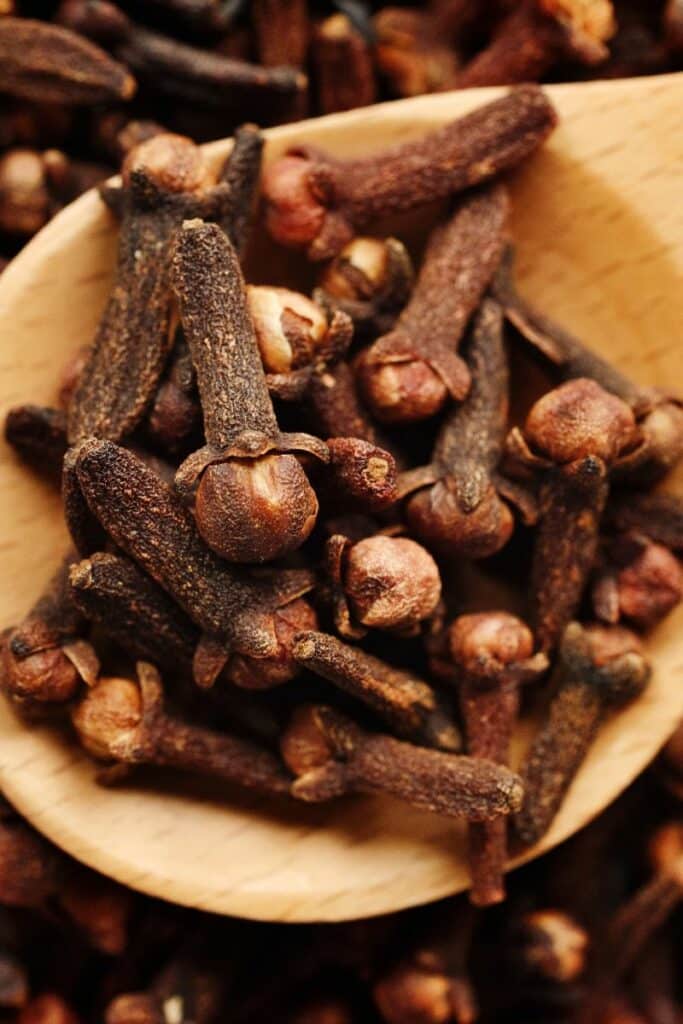
How to Integrate These Herbs into Your Daily Oral Care Routine
Incorporating herbs into your daily oral care routine can boost your gum health naturally. Here’s how you can create your own herbal mouthwashes and toothpastes, and use herbs effectively every day to maintain a healthy mouth.
DIY Recipes for Herbal Mouthwashes and Toothpastes
DIY Herbal Mouthwash Recipes
Peppermint and Tea Tree Mouthwash
- Ingredients: 1 cup distilled water, 5 drops of peppermint oil, 2 drops of tea tree oil.
- Instructions: Mix the oils with the distilled water in a clean bottle. Shake well before each use. Swish a small amount in your mouth for 30 seconds and spit it out.
Clove and Chamomile Mouthwash
- Ingredients: 1 cup boiling water, 2 chamomile tea bags, 5 drops clove oil.
- Instructions: Steep the chamomile tea bags in boiling water for 10 minutes. Remove the tea bags and add clove oil. Allow the mixture to cool before using. Use twice daily for bests results.
Herbal Toothpaste Recipes
Neem and Turmeric Toothpaste
- Ingredients: 2 tablespoons coconut oil, 1 teaspoon turmeric powder, ½ teaspoon neem powder.
- Instructions: Mix all ingredients to form a paste. Use it as you would any other toothpaste. Not only does it reduce inflammation, but it also brightens teeth.
Aloe Vera and Baking Soda Toothpaste
- Ingredients: 2 tablespoons aloe vera gel, 1 tablespoon baking soda.
- Instructions: Combine the aloe vera gel and baking soda into a smooth paste. Use this blend to brush your teeth, helping to soothe gums and clean your teeth effectively.
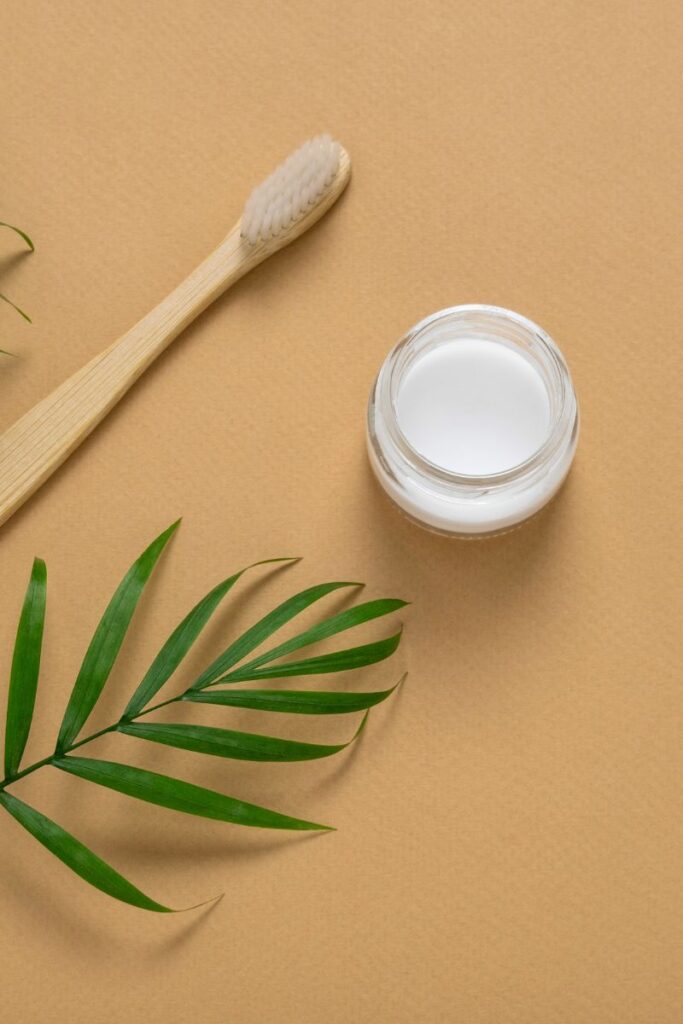
Targeted Herbal Applications
Tea Tree Oil Gum Treatment for Gum Recession
- Ingredients: 5 drops of tea tree oil, 1 teaspoon of coconut oil.
- Instructions: Blend the tea tree and coconut oils together. Soak a cotton ball in this mixture and carefully apply it directly to the receding gums. Hold in place for 5-10 minutes. Tea tree oil's antibacterial properties help fight infections that may cause further gum recession, while its anti-inflammatory effects reduce swelling. Use this treatment once daily.
Witch Hazel and Black Tea Gum Compress for Bleeding Gums
- Ingredients: ½ cup brewed black tea (cooled), 1 tablespoon witch hazel.
- Instructions: Prepare the black tea and allow it to cool. Stir in the witch hazel. Using a cotton swab, press it against the bleeding gums for a soothing effect. Hold the cotton ball on the affected area for several minutes. Witch hazel's astringent properties help tighten the gums, reducing bleeding and inflammation. Use this compress twice daily or as needed.
Tips for Daily Oral Hygiene Using Herbs
- Start with Gentle Brushing: Use a soft toothbrush and herbal toothpaste. Brush gently to avoid irritating the gums further.
- Floss Regularly: Use floss as usual, but consider dipping it in a herbal mouthwash before use to introduce the benefits of herbs directly between your teeth.
- Rinse with Herbal Mouthwash: Rinse with a homemade herbal mouthwash after meals or at least twice a day to reduce bacteria and soothe the gums.
- Incorporate Herbal Teas: Drink herbal teas like chamomile or peppermint. They not only help reduce stress but also possess anti-inflammatory properties that benefit oral health.
- Chew on Fresh Herbs: Chewing on fresh peppermint leaves or cloves can freshen breath and provide quick relief from gum discomfort.
Using herbs for gum health offers a natural way to soothe inflammation and improve oral hygiene. Herbs like aloe vera, turmeric, and tea tree oil not only reduce gum discomfort but also enhance overall gum health with their natural antibacterial and anti-inflammatory properties. Embrace these natural solutions to maintain healthy gums and complement your daily oral hygiene routine.
When to See a Dentist
Even if you use herbal remedies regularly, it's crucial to maintain regular dental check-ups. Here are some scenarios where you should definitely consult a dentist:
- Persistent Pain: If gum pain or discomfort persists for more than a week despite using herbal remedies, see your dentist.
- Increased Inflammation or Bleeding: Any increase in gum inflammation or bleeding during brushing and flossing is a sign that professional care is needed.
- Signs of Infection: Symptoms like unusually bad breath, pus between your teeth and gums, or loosening teeth require immediate dental attention.
- Before Starting Any New Treatment: Consult with your dentist before adding herbal remedies to your routine, especially if you have ongoing dental issues.
Possible Interactions with Medications
Herbs are powerful, and some can interact with medications you might be taking. For example:
- Blood Thinners: Herbs like clove and chamomile may increase the risk of bleeding if you’re taking blood-thinning medications.
- Diabetes Medications: Since some herbs can affect blood sugar levels, it’s important to watch for interactions if you're managing diabetes.
Can these herbs replace my regular dental treatment?
No, these herbs should not replace your regular dental treatment. They are intended to complement your existing oral care routine by providing additional natural benefits. Regular visits to your dentist are crucial for maintaining overall oral health and addressing issues that herbs alone cannot treat.
How long does it take to see effects from these herbal remedies?
The time it takes to see effects from herbal remedies can vary depending on the individual and the specific condition of their oral health. Some people may notice improvements in gum inflammation and discomfort within a few days of using these remedies, while for others, it might take a few weeks. Consistent use is key to seeing benefits.
Are there any side effects of using these herbs for oral care?
While side effects from using herbs in oral care are generally minimal, individual reactions can vary. It's possible to experience allergic reactions or sensitivity to specific herbs. If you notice any adverse effects such as itching, swelling, or increased irritation, discontinue use and consult your healthcare provider if necessary. Always use herbs as directed and consider conducting a patch test before applying anything new to your gums.
Using herbs for gum health offers a natural way to soothe inflammation and improve oral hygiene. Herbs like aloe vera, turmeric, and tea tree oil not only reduce gum discomfort but also enhance overall gum health with their natural antibacterial and anti-inflammatory properties.
These herbal remedies can be a vital part of maintaining good oral health, especially when integrated thoughtfully with routine dental care. Embrace these natural solutions to maintain healthy gums and complement your daily oral hygiene routine, keeping in mind the essential role of regular dental visits and being mindful of any medical conditions or potential interactions with other treatments.
